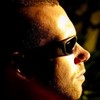
In a push that sees Canada move one step closer to a state where being constantly watched, catalogued, and data mined is the norm, the Conservative government recently decided to expand its public surveillance policy to include all protests and demonstrations. The Government Operations Centre sent an email to all federal departments that requested information on even the most mundane social movements. The email then leaked to Postmedia news and opposition parties are now crying afoul, calling the plan a clear blow to democratic freedom.
Advertisement
Advertisement
Advertisement
